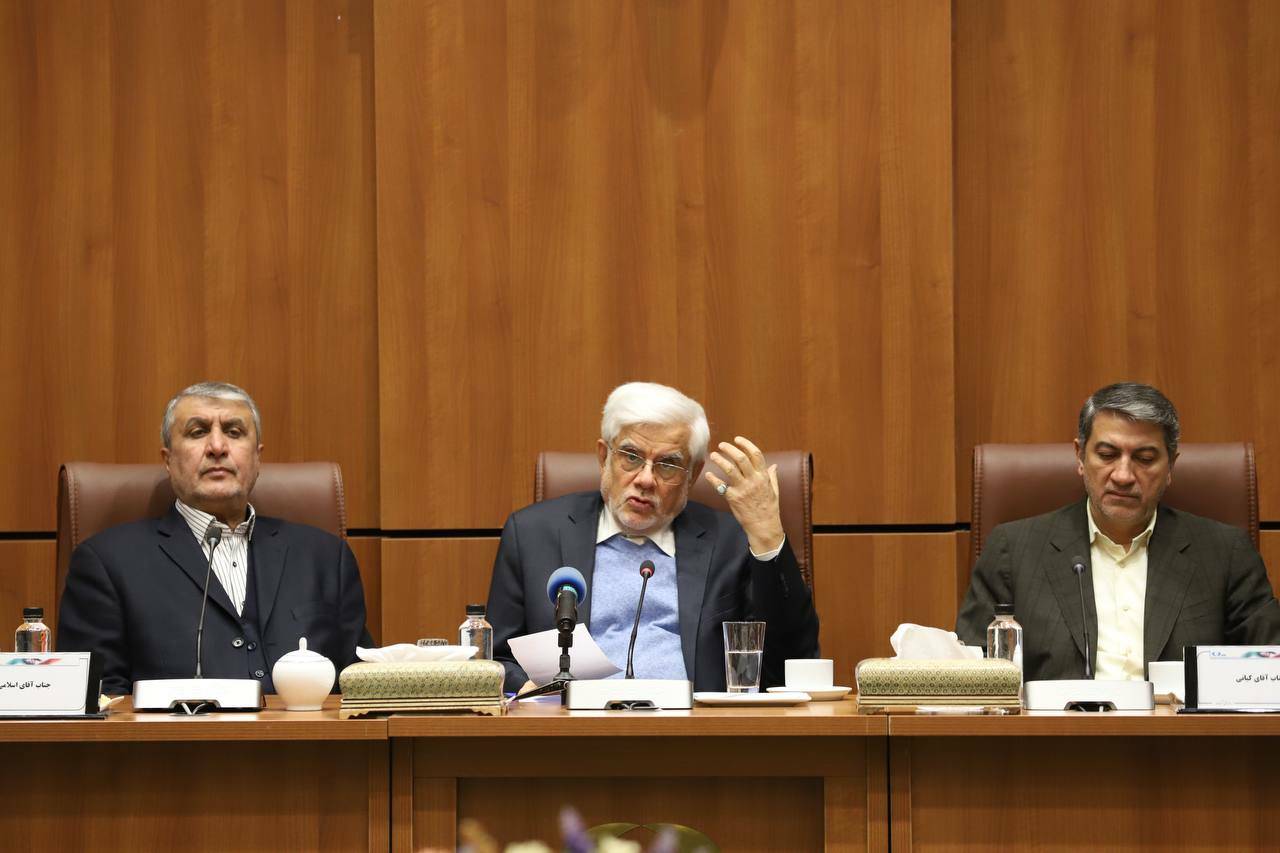BAKU, Azerbaijan, December 9. Regarding its nuclear program, Iran would prefer that all parties involved return to the JCPOA, the Iranian First Vice President Mohammad Reza Arif said at a meeting with leaders of the Atomic Energy Organization of Iran in Tehran on December 9, Trend reports.
According to him, the Iranian side has not withdrawn from the Comprehensive Joint Action Plan. If the opposite sides return to this agreement, Iran is ready to fully fulfill its commitments. Iran has made and will make a transparent pitch in all cases. However, if the opposite parties want to get all of Iran's information in this area, Iran will never do so.
“Iran is ready to resolve the existing issues with the Western countries, taking into account the interests of both sides. Negotiations are underway with Western countries to lift sanctions against Iran. “Iran must continue its peaceful nuclear program and firmly state that it will not allow anyone to interfere in the country's nuclear and non-nuclear affairs,” he said.
Iran's first Vice President noted that unfounded claims have been made recently regarding the activation of the snapback mechanism. This issue has been experimented with many times. The opposing sides should know that Iran favors dialog and negotiations but will not surrender in the presence of a threat.
Aref added that the International Atomic Energy Agency should continue to exercise its control over Iran's nuclear program within the framework of the agreements and principles reached with Iran. In this case, Iran is always ready to cooperate.
Notably, on November 29, the deputy foreign ministers of Iran and three European nations—the UK, France, and Germany—met in Geneva.
To note, in January 2016, Iran and the P5+1 group (the US, Russia, China, the UK, France, and Germany) implemented the Comprehensive Joint Plan of Action concerning Iran’s nuclear program.
However, in May 2018, the US announced its withdrawal from the deal and reimposed sanctions on Iran.
Two years later, Iran responded to the sanctions by implementing a strategic plan for the nuclear sector to counter them. The Iranian parliament decided this at the end of 2020, leading to the suspension of additional measures and the Additional Protocol following the nuclear agreement.
Consequently, the International Atomic Energy Agency (IAEA) faced a reduction in monitoring capabilities by 20–30 percent.
Iran officially says that its strategy does not include obtaining an atomic bomb. Iran has never backed the development of weapons of mass devastation.
Stay up-to-date with more news on Trend News Agency's WhatsApp channel







